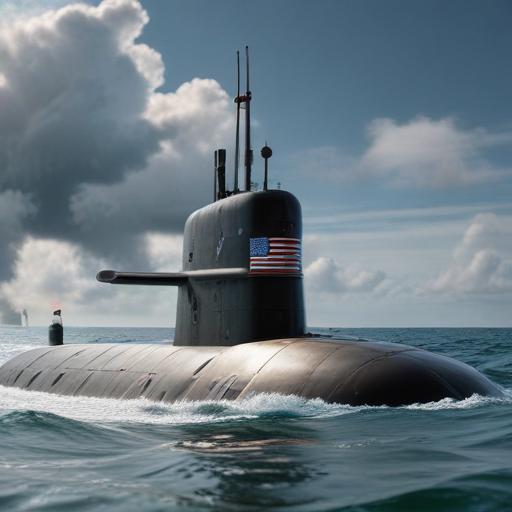Donald Trump, facing a challenging week, has stirred concerns by announcing on his Truth Social platform that he has ordered two nuclear submarines to be positioned in response to comments from former Russian President Dmitri Medvedev. Trump’s remarks come as tensions have escalated between the U.S. and Russia, particularly with Medvedev, who is known for making provocative statements that often go unheeded even within Russia.
While all American submarines are nuclear-powered, Trump’s claim seems to imply that he has directed submarines armed with ballistic nuclear weapons to specific regions. He emphasized the significance of words, suggesting his caution in making such statements might be linked to recent geopolitical developments. However, the routine movements of the U.S. Navy’s submarines around the globe raise questions about the actual impact of his announcement; such deployments typically occur without public discourse from the Pentagon.
Medvedev has often served as a mouthpiece for Russian political antics, exchanging barbs with Trump on social media. Their ongoing provocation underscores the complexities of international relations and the role of rhetoric in these engagements. Notably, Trump’s past discourse on nuclear power reveals an inconsistent understanding of the gravity such statements carry. During a Republican primary debate in 2015, he mentioned that nuclear strategy is crucial yet often defaults to using nuclear threats as a political tool rather than a serious matter of national security.
An alarming aspect of Trump’s discourse is that it reflects a broader shift in political communication concerning nuclear weapons. Historically, U.S. presidents have approached such discussions with seriousness and careful consideration, focusing on strategy and diplomacy rather than engaging in trivial exchanges.
Currently, Trump may utilize the nuclear threat as a means of diverting attention from pressing issues, such as his declining approval ratings and controversies surrounding his administration. This tactic, while effective in garnering media attention, raises concerns about the normalization of reckless language regarding nuclear capabilities.
The future implications of Trump’s rhetoric could be significant if adversaries misinterpret or take his threats seriously. Such misunderstandings may lead to dangerous escalations, highlighting the need for a return to responsible and measured discourse surrounding nuclear deterrence. In a time when global security remains at stake, it is crucial for leaders to communicate with the weight and responsibility that these discussions command.
As nations navigate these turbulent waters, there is a hopeful notion that dialogue and diplomacy will ultimately prevail, reminding global leaders of the importance of careful communication in the face of potentially catastrophic consequences.
